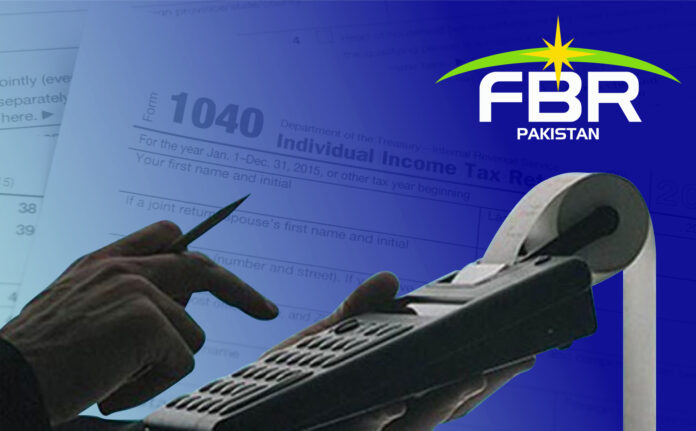Finance Minister Muhammad Aurangzeb announced on Monday that the Tax Policy Office will now be under the Ministry of Finance, marking a shift in the country’s fiscal governance. As a result, the Federal Board of Revenue (FBR) will no longer play a role in preparing the annual budget.
According to media reports, Mr Aurangzeb said this during a workshop titled ‘Unlocking Capital Market Potential for Banks,’ organized by the Securities and Exchange Commission of Pakistan (SECP) and the Pakistan Banks Association (PBA).
He stated, “The Tax Policy Office has been moved to the Finance Division. FBR will no longer be involved in the policy-making process. The budget for FY27 will be led by the finance and tax policy office.”
Regarding tariff reforms, Aurangzeb emphasized the importance of reducing customs duties and other levies to improve export competitiveness. “We need to reduce customs duties, additional duties, and regulatory duties over the next four to five years to boost export competitiveness,” he said.
He clarified that these tariff reforms are a government-driven initiative, not influenced by the International Monetary Fund (IMF).
Aurangzeb also acknowledged concerns from FBR about the potential loss in revenue due to tariff reductions but stressed the need for long-term strategies for growth.
On industrial policy, the minister stated that the government is working on a plan aimed at accelerating industrialization. “Special Assistant to the Prime Minister Haroon Akhtar is working diligently to finalize the industrial policy, which will be presented soon,” he said, adding that recent government initiatives include policies on tariffs, electric vehicles, a cashless economy, and the digital sector.
The minister also pointed out the absence of corporate sector representation at the workshop, despite their crucial role in capital market development. He suggested the creation of a Capital Market Development Council involving key stakeholders such as SECP, State Bank of Pakistan, PBA, and provincial representatives to mobilize funds through domestic markets like the Pakistan Stock Exchange (PSX).
Speaking at the inauguration of the Job and Education Expo at the Expo Centre in Karachi, organized by the Pakistan Hindu Council, Aurangzeb emphasized the importance of youth engagement with technology and striving for excellence. He also noted that while the job fair attracted various public and private institutions, the absence of the corporate sector was noticeable.
Federal Finance expressed confidence that the ongoing work by the State Bank of Pakistan on exchange and interest rates will further improve the country’s economic situation.
Aurangzeb also touched on the corporate sector’s role, stating that interest rates should not dominate discussions and that working capital should extend beyond banks, with a focus on capital markets. He suggested that debt capital markets should be linked to the Pakistan Stock Exchange for greater efficiency.
On the issue of circular debt, the finance minister highlighted improvements in the power sector, noting that three distribution companies (DISCOs) would be privatized soon. He added that efforts were also underway to address the long-standing circular debt problem in the gas sector.
Regarding monetary policy, Aurangzeb clarified that the government does not determine interest rates, which is under the State Bank’s mandate, and that exchange rates will continue to be market-driven.
Aurangzeb expressed optimism about the country’s future economic prospects, predicting that by 2047, Pakistan would be considered a developed nation. He also pointed out the importance of women’s economic participation in driving poverty eradication and announced ongoing discussions with the World Bank for funding to support these initiatives.
The finance minister also praised Pakistan’s anti-money laundering efforts, which led to the country’s removal from the FATF grey list, and expressed confidence that Pakistan would remain compliant.
Responding to concerns over recent rainfall damage in Khyber Pakhtunkhwa, Aurangzeb said his immediate focus was on assisting the affected people and assessing the extent of the damage.
On the topic of a new province, Aurangzeb refrained from giving a direct response. He stressed the need for sustainable growth, stating that public-private partnerships and moving toward an AI-driven future are key to the country’s advancement.
The finance minister concluded by stating that, despite challenges, economic stability has been achieved, with positive outlooks from the three major rating agencies, and that the situation would continue to improve as stability increases.




